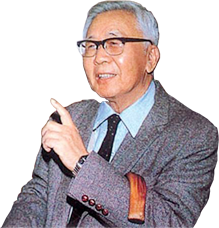Quantitative Tuning of Active Disturbance Rejection Controller for FOPTD Model With Application to Power Plant Control(Wenchao Xue)
Active disturbance rejection controller (ADRC) has achieved soaring success in motion controls featured by rapid dynamics. However, it turns obstreperous to im- plement it in the power plant process with considerable time-delay, largely because of the tuning difficulty. To this end, this article proposes a quantitative tuning rule for the time-delayed ADRC (TD-ADRC) structure based on the typical first order plus time delay (FOPTD) model. By com- pensating the FOPTD process as an integrator plus time delay in low frequencies, the gain parameter of TD-ADRC can be related to a scaled time constant which shapes the closed-loop tracking performance. Bandwidth parameter of extended state observer is scaled as a dimensionless pa- rameter. A sufficient stability condition of TD-ADRC is the- oretically derived in terms of the scaled parameter pair, the range of which falls within the practical interest. Relative delay margin is revealed as a critical robustness metric among others, a default pair of scaled parameter setting is recommended as well as an explicit retuning guideline according to the user’s preference for performance or ro- bustness. Simulation and laboratory water tank experiment validate the tuning efficacy and a coal mill temperature con- trol test depicts a promising prospective of the proposed method in process control practice.
Publication:
IEEE Transactions on Industrial Electronics ( Volume: 69, Issue: 1, Jan. 2022)
Date of Publication: 14 January 2021
Author:
Li Sun
Key Lab of Energy Thermal Conversion and Control of Ministry of Education,
School of Energy and Environment, Southeast University, Nanjing, China
Wenchao Xue
LSC, NCMIS, Academy of Mathematics and Systems Science, Chinese Academy of Sciences, Beijing, China
School of Mathematical Sciences, University of Chinese Academy of Sciences, Beijing 100049, China
Donghai Li
Department of Thermal Engineering, Tsinghua University, Beijing, China
Hongxia Zhu
School of Energy and Environment, Nanjing Institute of Technology, Nanjing, China
Zhi-gang Su
Key Lab of Energy Thermal Conversion and Control of Ministry of Education, School of Energy and Environment, Southeast University, Nanjing, China

